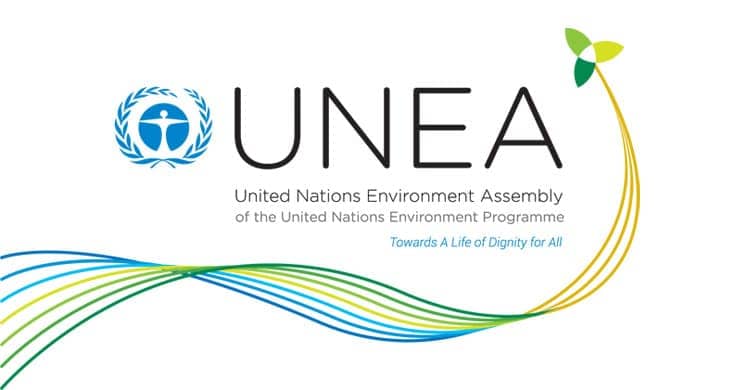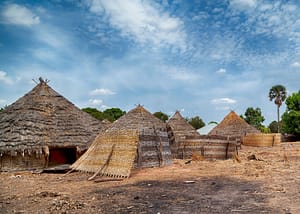Risks associated with infrastructure development in southern African rural areas
When United Nations Environment Agency (UNEA 5.2) convenes next week from 28 February to 4 March 2022 in Nairobi, Kenya, representatives of the Community Leaders Network of Southern Africa member Chifundo Dalireni from Malawi and Resource Africa UK CEO, Dr Malan Lindeque, will, along with others from civil society organisations, participate and contribute to the many processes, deliberations and agreements that the forum offers. In this article, Dr. Lindeque discusses the need for better recognition of the potential impacts from infrastructure development on rural communities and community-based conservation programmes:
Many countries in Africa are undergoing rapid transformation through infrastructure development which is a crucial necessity for economic development and industrialisation. Many large infrastructure projects are beneficial to rural communities but some pose great risks to rural communities. Linear infrastructure such as roads and railway lines as well as large dams or reservoirs tend to displace people and fragment their land.
Adequate attention to environmental harm from such developments is seldom given and national legislation on environmental protection (and resource rights) is mostly weak or absent. Few African countries have robust Environmental Impact Assessment (EIA) processes in place and few rural communities know how to effectively engage in these. Strategic Environmental Assessments (SEAs) are almost unknown and development planning proceeds unabated without the use of this tool, which is meant to take larger scale and cumulative effects as well as more diverse issues into account and also to provide a test of net economic benefits of development plans and large scale projects.
The greatest hope is that safeguards and SEA or EIA requirements of the more responsible financiers such as the World Bank, African Development Bank, European Development Bank, and other northern hemisphere national development banks and funds can plug this gap, but experience has shown that when too many conditions are attached to funding, African Governments go for softer funding options with mostly no conditions attached
Infrastructure development and the planning that precedes that in much of Africa is taking place without effectively consulting rural communities and without taking their resource rights and interests into account. Ensuring that infrastructure development brings benefits to local communities seldom extends beyond unskilled employment created during construction and infrastructure is often designed without the option of delivering direct benefits to local people. For example, power-lines across land occupied by rural communities without any provision for electrification of rural villages.
Where rural communities engage in community-based conservation programmes, there is a high risk that their land and wildlife habitat becomes fragmented or that wildlife corridors or movement routes become obstructed and affects wildlife population viability. A further impact may be the devaluation of the aesthetic properties of landscapes used for tourism through unsightly modern infrastructure, permanently reducing the income earning potential of tourism enterprises and reducing development options for local communities.
The right thing to do is obtaining prior informed consent and more comprehensive EIAs as well as additional measures to ensure that communities know how to exercise their rights within often obscure EIA and public consultation processes. It is not nearly enough to publish notices of planned infrastructure or EIAs in national newspapers to which people in rural areas have limited or no access. Documentation on projects or feedback on issues raised cannot simply be emailed to stakeholders with poor Internet access.
Consultation procedures must be designed with these limitations in mind and importantly, rural community stakeholders need to be educated about their rights and the procedures followed in EIAs as well as how they could engage. Processes need to be equitable recognising that information flows within rural communities tend to follow power relationships, resulting in the most vulnerable people often being the least informed and their concerns the least considered.
Knowledge of the rights of indigenous people and rural communities seems to be greatly lacking, and such rights are often poorly articulated in national legislation. In some cases such rights only derive from international agreements and Declarations by the United Nations Assembly, which may not be enforceable because they are not buttressed by national legislation or sufficiently regarded by development planners and investors.
These issues will be discussed at the 5th meeting of the United Nations Environment Agency (UNEA 5.2) taking place from 28 February to 4 March 2022 in Nairobi.
This forum commendably provides opportunities for engagement by civil society and representatives of the Community Leaders Network of Southern Africa and Resource Africa will participate in these discussions. Hopefully others at the meeting will support these inputs; we especially need African governments to mainstream EIA and SEA processes in their development planning and financing agreements.
Better recognition of the potential impacts from infrastructure development on rural communities and community-based conservation programmes in particular would amount to better recognition of the rights of rural communities to be heard on all matters that affect their livelihoods and interests

About the Author
Dr Malan Lindeque is the CEO of Resource Africa United Kingdom (RAUK). Malan has extensive senior management experience in government, private sector and international organisations and worked in wildlife research, protected area management, community based natural resource management, and other areas. He contributed to the development of an entirely new conservation and environmental philosophy and practice in Namibia post-independence in 1990. Malan served as Permanent Secretary of Namibia’s Ministry of Environment and Tourism. Ministry of Trade and Industry, and as the Chief: Scientific Coordination Unit, Secretariat of the Convention on International Trade in Endangered Species of wild fauna and flora (CITES). Malan was awarded a Masters in zoology from the University of Pretoria and a PhD by the University of Stellenbosch.





